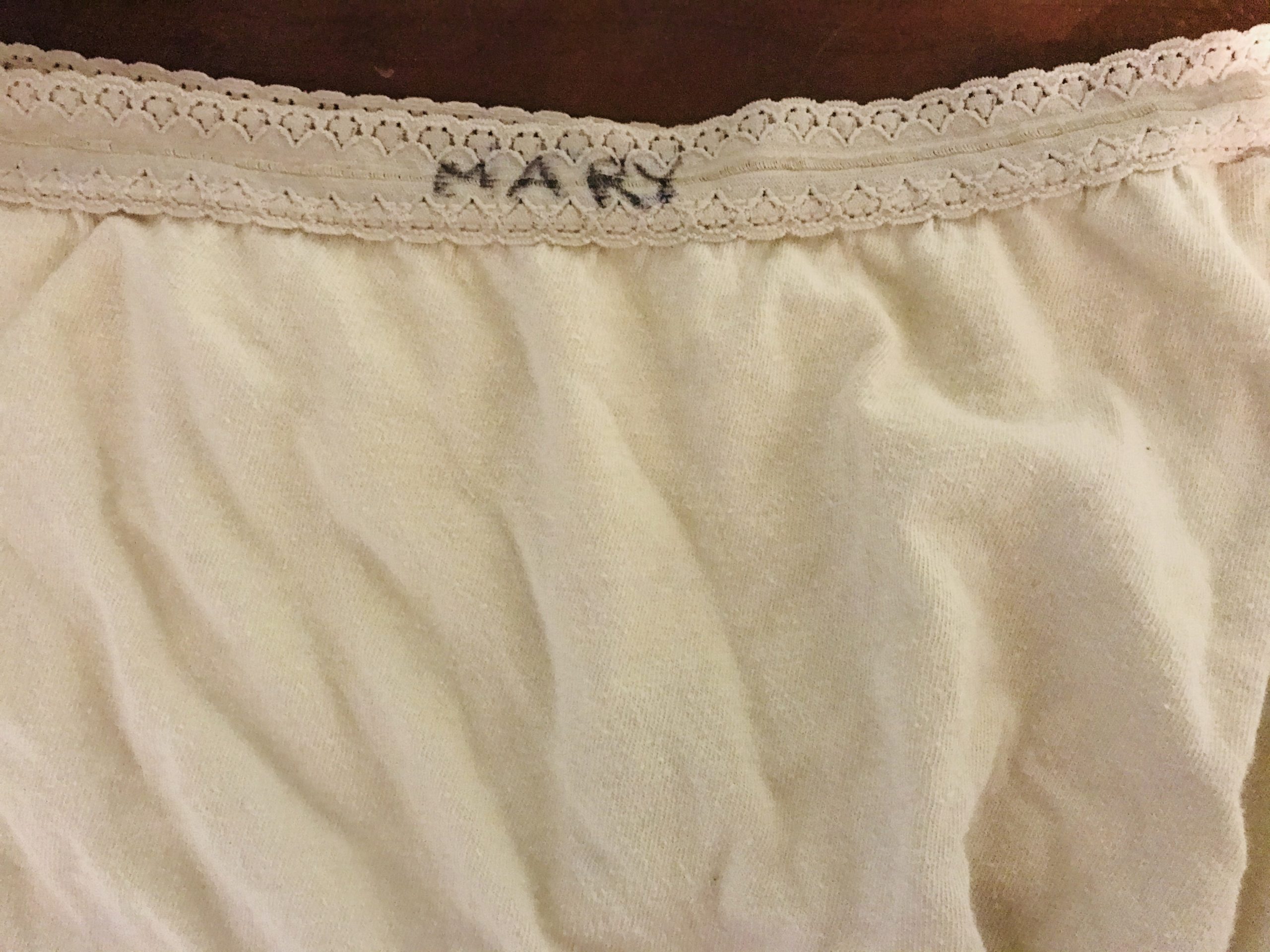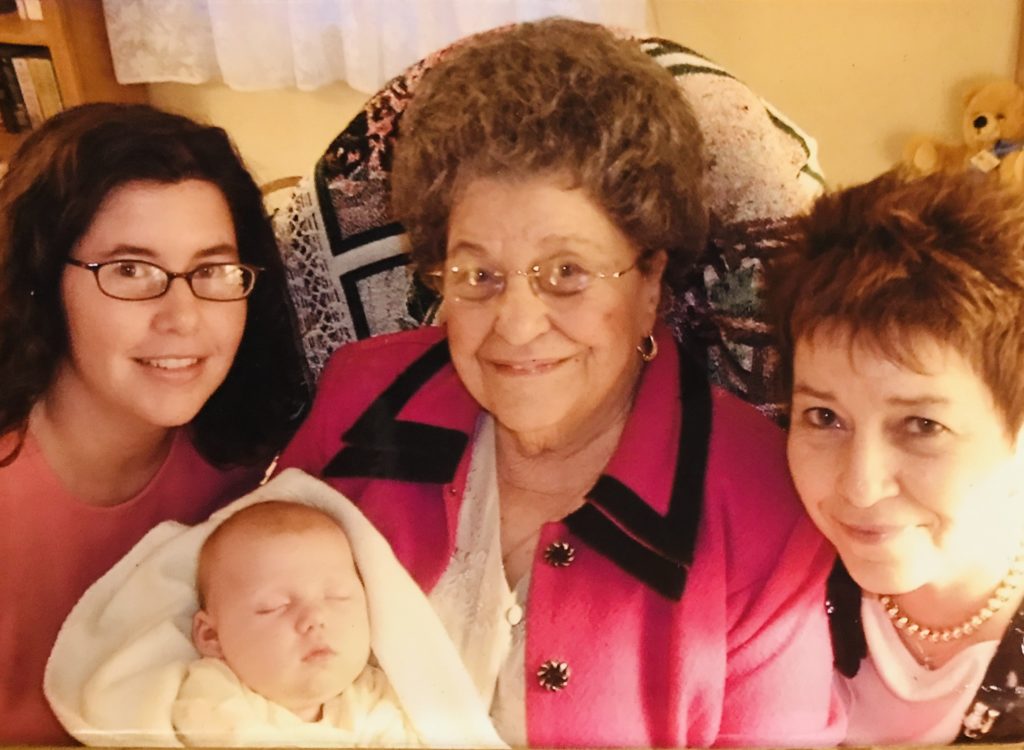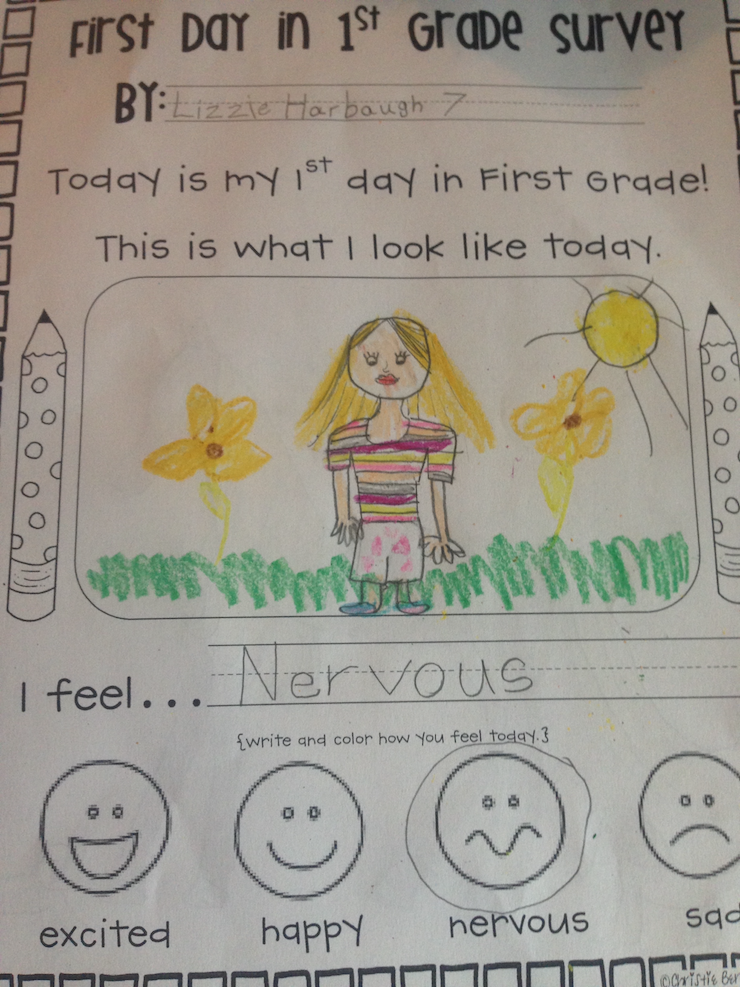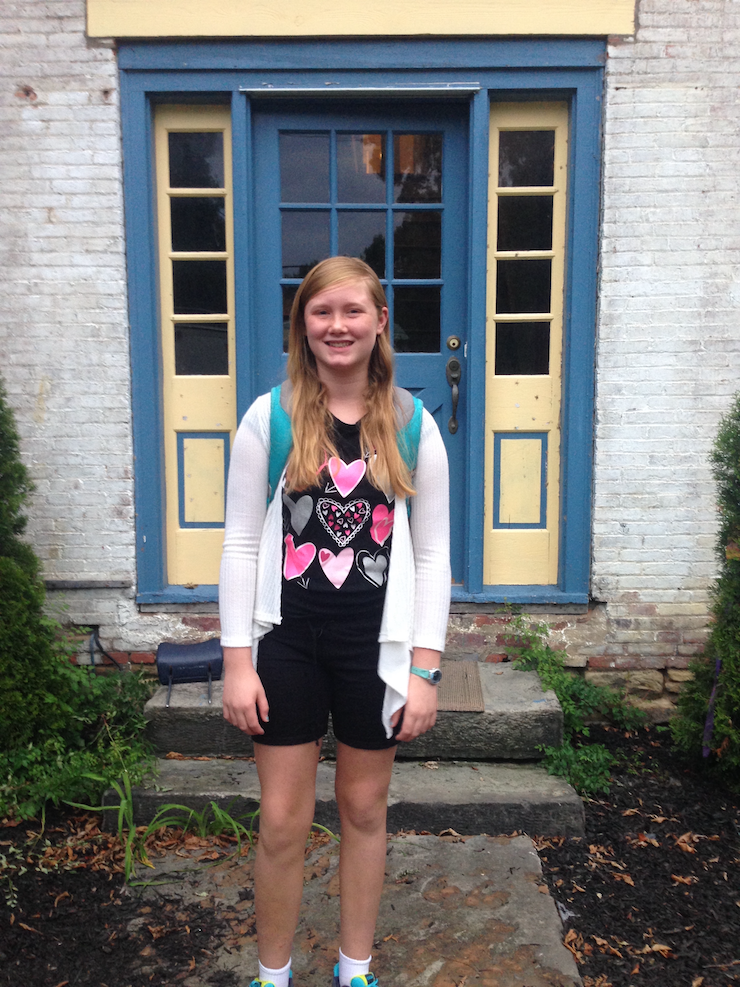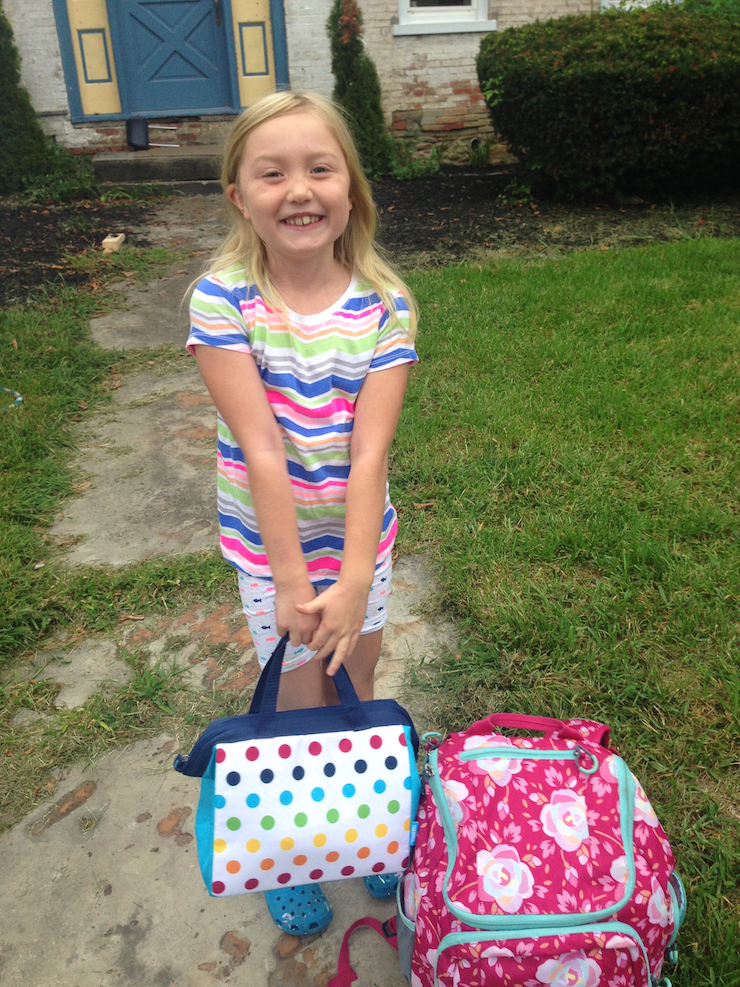When my grandma died, my mom gave me all her underwear.
Not my mom’s underwear, but my grandmother’s.
And not right away, of course, but after an appropriate period of mourning.
Of course, how long is the appropriate period of mourning when it comes to dividing up someone’s belongings? Their jewelry, their tchotchkes, or that paper bag full of extra-large cotton briefs with the name MARY written in black magic marker on the waistband?
While I suppose most of us would be mortified to think of our unmentionables being handed down for posterity, to be fair, my Grandma Mary was a thrifty woman. She hated waste. She lived through world wars, the Depression, and up until the year she died, she was still hand-washing her own clothes. She cooked and ate every part of the chicken – “everything except the beak.” She was known to pick her teeth with a bone after a good meal.
And she was tenacious. During WWII, she hopped the bus to the Goodyear plant where she learned to be a Rosie the riveter. My Grandma Mary was only 4’10”, but she constructed airplanes. Imagine that.
Sometimes, I look around my own house and wonder what, if anything, my children will want of mine after I am gone. Will anyone want the wobbly IKEA coffee table that has always been just shy of plumb? Or that green lamp with the slightly-too-small shade that I bought at the church rummage sale for 10 bucks?
Will any of my kids want my most treasured belongings? My books? Dog-eared and worn, with bookmarks comprised of whatever was within reach at the time – dirty Kleenex, clean toilet paper, used post-it notes. Will my children take time to read what I underlined or contemplate what moved me? Will they remember that Joan Didion said, “We tell ourselves stories in order to live?” Will they swoon over Rachel Held Evans’s wisdom that all of us “live inside an unfinished story”? Will they pause and live differently because Mary Oliver asked, “What is it you plan to do with your one wild and precious life?”
No, probably not.
As impossible as it is for me to envision, when my children are finally grown and tasked with the unfortunate business of boxing and dispersing the dusty shelves and closets of my life, my kids will likely take a long, hard look at the entire household and toss the lot of it.
Which, I suppose, is fine. Some other kids, some other families, can cobble together a life out of all those books and second-hand furniture. After all, it worked for us.
But if they will not keep my stuff, what will my kids hold onto that was mine?
I hope they will remember my capacity for laughter. I want them to chortle and maybe even snort milk out their noses when they of think me sledding into the river on that cafeteria tray or crawling through the doggie door when we were locked out of the house or combing the head lice out of their hair with a lavender shower cap on my own head.
I hope they will remember how much I loved them—even though it ruined me. How I began pre-childbearing days as a size 8 and never saw that dress size again. How my hair turned prematurely gray and fell out of my head at an alarming rate watching them play basketball, soccer, and t-ball…so very badly. I hope they’ll recall how their music recitals, no matter how terrible or off-key, never ceased to make me count my blessings and weep.
I hope they will remember that I held them when they cried, comforted them when they were afraid. And when the world was hard, I defended them with the fierce pride of a lioness.
It is my distinct hope that the day of my demise is a long time in the future. After all, I’m still trying to figure out what I want to be when I grow up. I’m still trying to envision life after childbirth, diapers, and the soul-killing monotony of packing school lunches. I have many miles to go before anybody sleeps. And as I do not need to tell anybody here, days with children are hard. It’s a lot of crying about the game and how it wasn’t fair or the bacon and how she got more or the bathroom and how it’s my turn or the elevator and how he got to press the button last time.
Raising kiddos is bonkers.
So I wake up every morning and don the pillowy armor of the past. I summon the courage and strength of all the women who did this gig before me. I slip on an enormous pair of my grandmother’s panties and stumble bleary-eyed, but supported, through the day.
